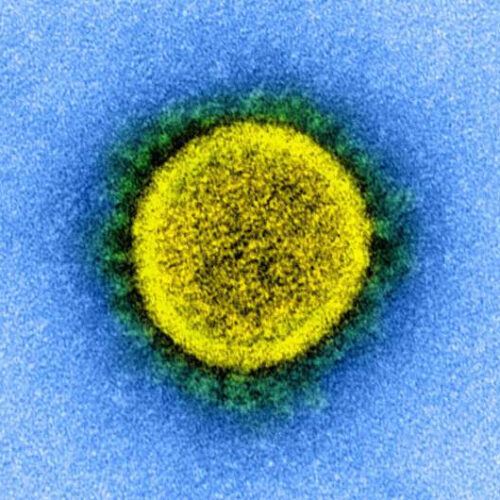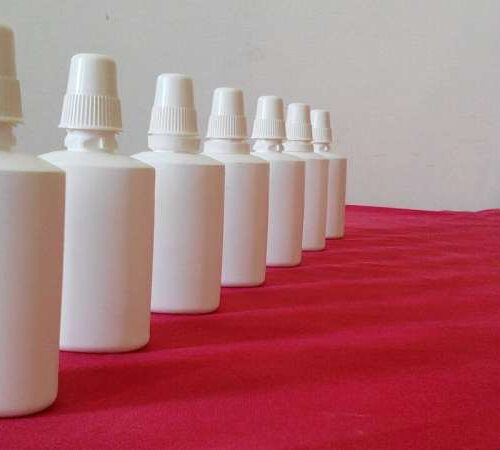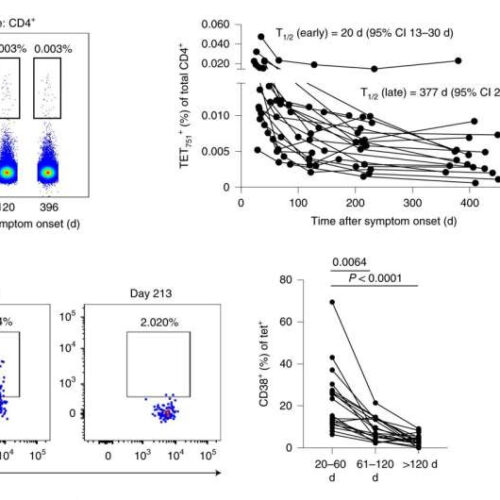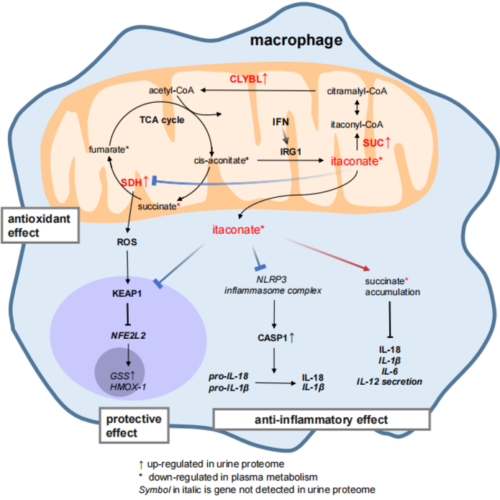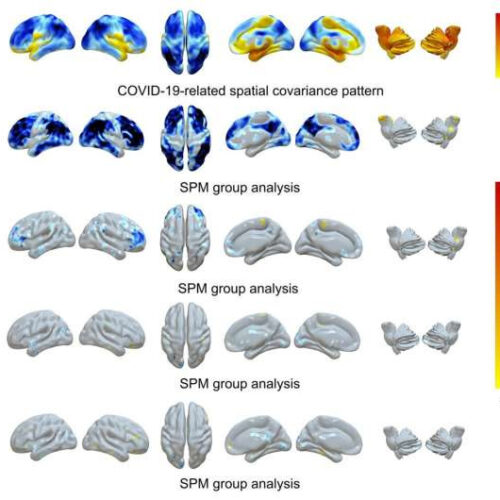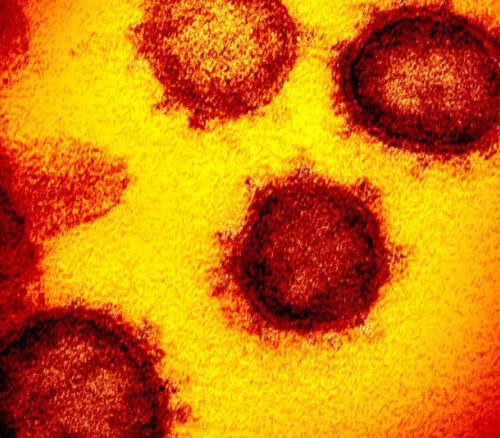by Children’s Hospital Boston SARS-CoV-2 (shown here in an electron microscopy image). Credit: National Institute of Allergy and Infectious Diseases, NIH A study led by researchers at Boston Children’s Hospital explains for the first time why COVID-19 causes severe inflammation in some people, leading to acute respiratory distress and multi-organ damage. Surprisingly, the study also...
Tag: <span>COVID-19</span>
Study shows COVID-19’s lingering impacts on the brain
by Tulane University Tracy Fischer, PhD, lead investigator and associate professor of microbiology and immunology at the Tulane National Primate Research Center. Credit: Tulane University, Paula Burch-Celentano COVID-19 patients commonly report having headaches, confusion and other neurological symptoms, but doctors don’t fully understand how the disease targets the brain during infection. Now, researchers at Tulane...
Discovering a new possible treatment for COVID-19
Interview conducted by Emily Henderson, B.Sc.Mar 30 2022 Thought LeadersDr. Ahmed G. IbrahimAssistant Professor, Smidt Heart InstituteCedars-Sinai Medical Center In this interview, we speak to Dr. Ahmed G. Ibrahim about his latest research that has discovered a new possible treatment for COVID-19. Please could you introduce yourself and tell us what inspired your latest research into...
Q & A: Should you get a second booster shot for COVID-19?
by Iqbal Pittalwala, University of California – Riverside David Lo. Credit: University of California – Riverside The Biden administration is planning to give Americans age 50 or older the option of a second booster. But is a second booster necessary? Would it differ from the first booster? And who should receive the second booster first?...
Promising nose spray could prevent, treat COVID-19
by Cornell University Credit: Pixabay/CC0 Public Domain A newly discovered small molecule could be sprayed into people’s noses to prevent COVID-19 illness prior to exposure and provide early treatment if administered soon after infection, according to a study in mice led by Cornell University researchers. The study, published in Nature, employed experimental mice engineered with human receptors...
Vaccine-induced T cells provide long-lasting immune response to COVID-19
by The Peter Doherty Institute for Infection and Immunity Establishment of S751-specific CD4+ T cell memory following mild COVID-19. a, Frequency of TET751+ cells (as a percentage of total CD4+) among uninfected (n = 9) or COVID-19 convalescent individuals sampled 20 to 60 d after symptom onset (n = 19). The lines indicate the median, and bars indicate the IQR. b, Representative...
Urinary proteomics identified alternation of an enzyme that consumes itaconate in the TCA cycle and implicated a role of itaconite as an immune modulating metabolite in COVID-19
SCIENCE CHINA PRESS IMAGE: OVEREXPRESSION OF CLYBL COULD LEAD TO THE LOSS OF UPSTREAM METABOLITES, THUS RESULTING IN THE REDUCTION OF ITACONATE. ITACONATE CAN INHIBIT SUCCINATE DEHYDROGENASE (SDH), ACTIVATE NRF2/NFE2L2 VIA ALKYLATION OF KEAP1, AND INHIBIT CASPASE-1-MEDIATED CLEAVAGE OF IL-1Β AND IL-18 TO AVOID EXCESSIVE INFLAMMATION VIA THE BLOCKAGE OF NLRP3 INFLAMMASOME ACTIVATION. CREDIT: ©SCIENCE...
Molecular imaging uncovers effects of COVID-19 on the brain
by Society of Nuclear Medicine Figure 1. 18F-FDG PET in COVID-19–related CNS disorders: Principal components analysis of spatial covariance pattern (first row) and statistical parametric mapping analysis of metabolic group differences (second to fifth rows) in patients with COVID-19–related encephalopathy, patients with post-COVID-19 syndrome, and patients with post-COVID-19 syndrome and hyposmia compared to healthy controls (n=13)....
Research provides hope to those experiencing long-term loss of smell due to COVID-19
By Ashley Nash March 10, 2022 12:50 p.m. MST This undated electron microscope image made available by the U.S. National Institutes of Health in February 2020 shows the virus that causes COVID-19. Researchers at Thomas Jefferson University are developing a treatment for people who have lost their smell due to COVID-19. NIAID-RML via Associated Press Researchers at Thomas...
Ongoing ‘immune injuries’ might cause persistent breathlessness after COVID-19
by Emily Head, Imperial College London Credit: Shutterstock Long-lasting immune activity in the airways might be the cause of persistent breathlessness following COVID-19. This is according to a new study of 38 people who were previously hospitalized with severe COVID-19. The results, published in Immunity, suggest these patients have an altered landscape of immune cells in their airways...

